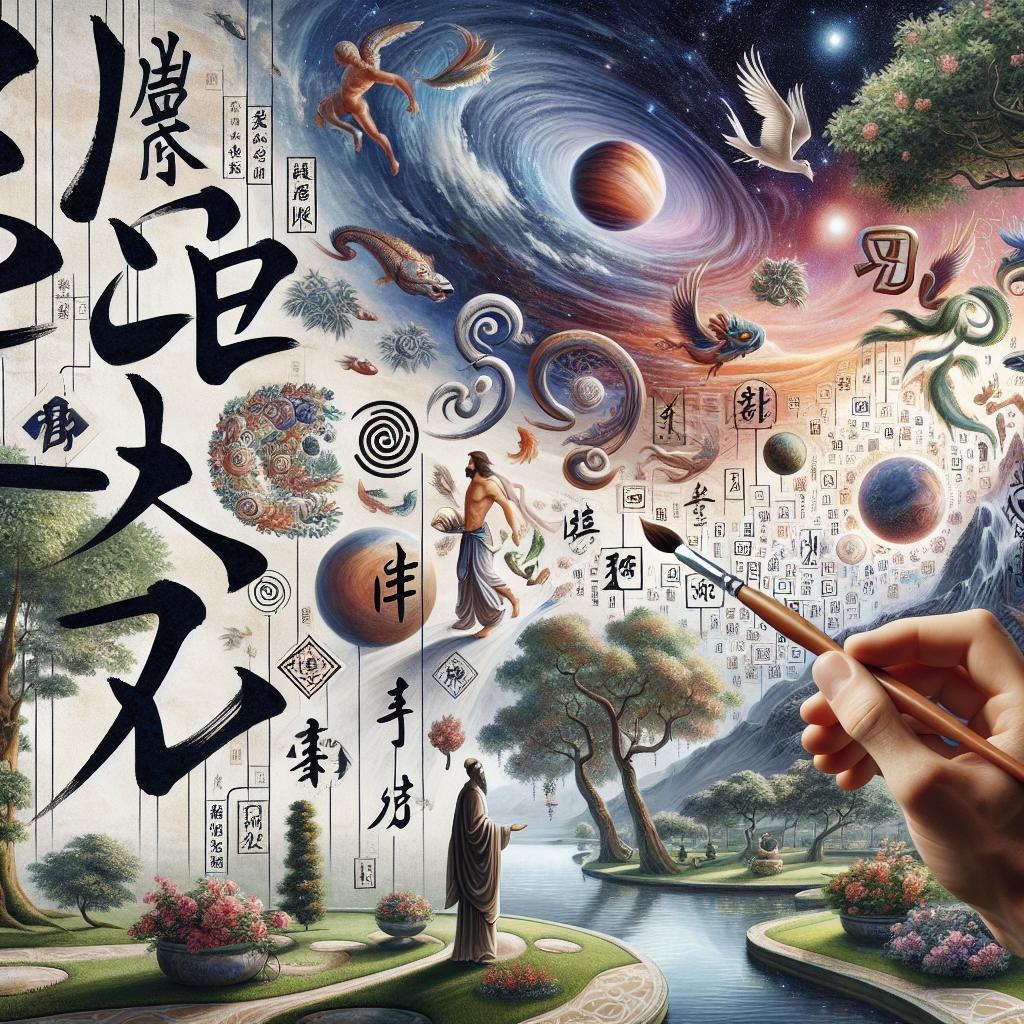
Divine Insights: Unveiling Chinese Characters in Genesis for Christian Revelation
Published: 28 July 2024
Chinese Characters and Genesis
Chinese characters have a rich history that dates back thousands of years. In recent research conducted by Ethel Nelson, Richard Broadberry, and Dr. Ginger Tong Chock in their book "God’s Promise to the Chinese," it is suggested that these ancient characters may hold a biblical meaning that has largely been lost over time. By analyzing the most ancient forms of Chinese writing found on bone fragments, the authors claim to have uncovered the original thoughts and beliefs of the ancient Chinese people, revealing a connection to the Gospel message found in the book of Genesis.
The Border Sacrifice and its Meaning
One intriguing aspect of ancient Chinese culture is the 4,000-year-old Border Sacrifice that was observed annually by Chinese emperors. This sacrificial ceremony raises questions about its significance and whether it holds any connection to biblical events. According to the authors, a closer examination of the Border Sacrifice reveals parallels with the story of creation and the promise of a Savior found in Genesis.
Shangdi: The Triune God
Central to the Border Sacrifice was the worship of Shangdi (上帝), a deity revered by the ancient Chinese. The authors argue that Shangdi is, in fact, a representation of the Triune God described in the Bible. Through meticulous analysis of ancient Chinese characters, they claim to have found evidence supporting this connection. It is important to note that these assertions are made from a young-earth, Christian, Creationist perspective.
Examples of Ancient Chinese Characters
The authors provide several examples of modern Chinese characters that they believe retain a connection to biblical themes when compared with their most ancient forms. While these connections may not be immediately apparent in their modern forms, exploring the ancient records of Chinese writing sheds light on their deeper meaning. The authors cite many more examples in their book "God’s Promise to the Chinese."
Example 1: The Character for "Righteous"
The Chinese character for "righteous" (義) is composed of two parts: "sheep" (羊) on the left and "me" (我) on the right. According to the authors, this character symbolizes the concept of righteousness as found in Genesis. They argue that the sheep represents sacrifice and atonement, while "me" signifies mankind. Together, they suggest that righteousness comes through sacrificial atonement.
Example 2: The Character for "Boat"
The character for "boat" (船) is composed of three parts: "vessel" (舟) at the top, "eight" (八) in the middle, and "mouth" (口) at the bottom. The authors contend that this character reflects the biblical account of Noah's Ark. The vessel represents the ark, while the number eight symbolizes new beginnings, as eight people were saved from the flood. The mouth denotes entering into safety.
Example 3: The Character for "Covet"
The character for "covet" (貪) is made up of two parts: "gold" (貝) on the left and "heart" (心) on the right. The authors suggest that this character conveys the biblical warning against covetousness. Gold represents wealth or material possessions, while the heart signifies desire or longing. Together, they indicate a cautionary message about the dangers of desiring worldly wealth.
Why This Matters
Exploring the potential connections between ancient Chinese characters and biblical themes provides a unique perspective on how different cultures may have received knowledge of God's truth throughout history. It challenges us to consider the possibility that ancient civilizations had access to spiritual truths that align with biblical teachings. This research opens up avenues for further investigation into how God may have revealed Himself to different cultures around the world.
Think About It
Reflecting on the connection between Chinese characters and Genesis raises thought-provoking questions. If these ancient characters do indeed reflect biblical themes, what does it mean for the Chinese people and their understanding of God's truth? How might this knowledge impact our own understanding of God's plan for humanity? Additionally, what other cultures and civilizations might hold similar connections to biblical narratives that we have yet to explore? These considerations encourage us to delve deeper into the study of linguistics, history, and the interconnectedness of world cultures.
In conclusion, the research conducted by Ethel Nelson, Richard Broadberry, and Dr. Ginger Tong Chock suggests a possible connection between ancient Chinese characters and the biblical account of Genesis. By examining the most ancient forms of Chinese writing, the authors assert that the original inventors of these characters possessed knowledge of creation and the promise of a Savior. While these claims require further investigation and scrutiny, they provide an intriguing perspective on how God's truth may have been revealed to diverse cultures throughout history.
